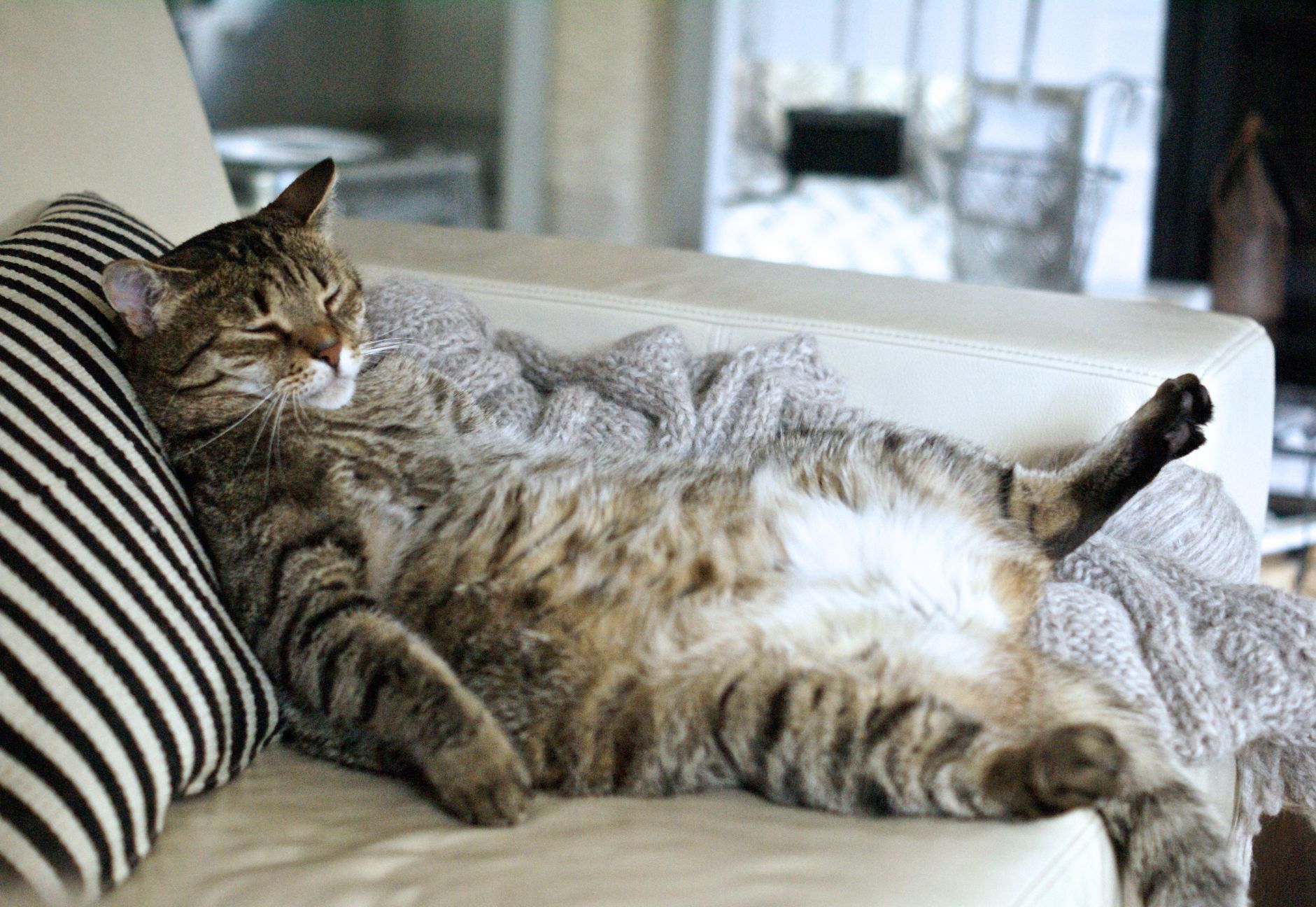When a Pet Gains Weight Over the Holidays

Holiday weight gain is a reality for most of us, pets and people alike. Between Halloween and New Year’s Day, we’re surrounded by indulgences for weeks on end. It might be perceived as normal for humans to put on a few extra pounds, but when a pet gains weight, their long-term health can be at risk. Prevention is always the best strategy, but if your pet needs to get back in shape for the new year, we’ve got the skinny.
Slow Down Weather
The first step is determining what a healthy weight is for your pet’s breed and age. In addition to a little extra pudge, you might see subtle behavioral changes, such as slowing down, disinterest in exercise, easily tired, panting after little exertion, or missed jumps.
If you know or simply suspect that they aren’t at their ideal weight, give us a call. Depending on the difference between their optimal and current weight, we can help make healthy changes to your pet’s daily nutrition, caloric intake, and exercise.
Why It Matters
Overweight pets face serious health problems, including diabetes, heart disease, osteoarthritis, cancer, and lung disorders.
We understand how easy it can be for a pet’s weight to get out of control. After all, most pets love to eat and many are skilled at begging for treats. It makes us feel good to reward our pets, but overfeeding them can have disastrous consequences.
Plus the Weather
Seasonal dips in outdoor temperature can make it uncomfortable to be outside, but we encourage you and your pet to keep up the exercise routine as much as possible. If your indoor-only cat needs to trim a few ounces, increase frequency and duration of play time to ensure they get a solid workout.
Extra calories and a lackadaisical approach to daily exercise can really affect your pet’s quality of life and even impact longevity.
When Your Pet Gains Weight
The first thing is to schedule a wellness visit so that we may compare your pet’s current weight with previous results. From there we can make recommendations for your pet’s diet that helps them in the long run.
It can be detrimental to make quick changes to your pet’s meals. You definitely don’t want them to lose weight too quickly, or cause anxiety or stress in the process. Time, patience, and dedication are required to help a pet lose weight.
Add Exercise
Even if your routine is to squeeze a walk or run in every day, it may be necessary to add time or frequency to your pet’s exercise regimen. Keep a journal so you can track scale readings, meal times and portions, and duration of workouts.
We also recommend puzzles to keep them mentally engaged so they aren’t relying on food rewards as much. Offer loads of praise and show enthusiasm for positive behavior.
Limit Treats
We know it will be difficult to switch this up, but it’s essential to limit or eliminate treats altogether. If you decide to offer tasty rewards, cut back on meal portions so that your pet receives only the necessary calories.
In It Together
If your pet gains weight over the holidays this year, our team is here to get them back on the right track. Please give us a call at (615) 646‑7387.

